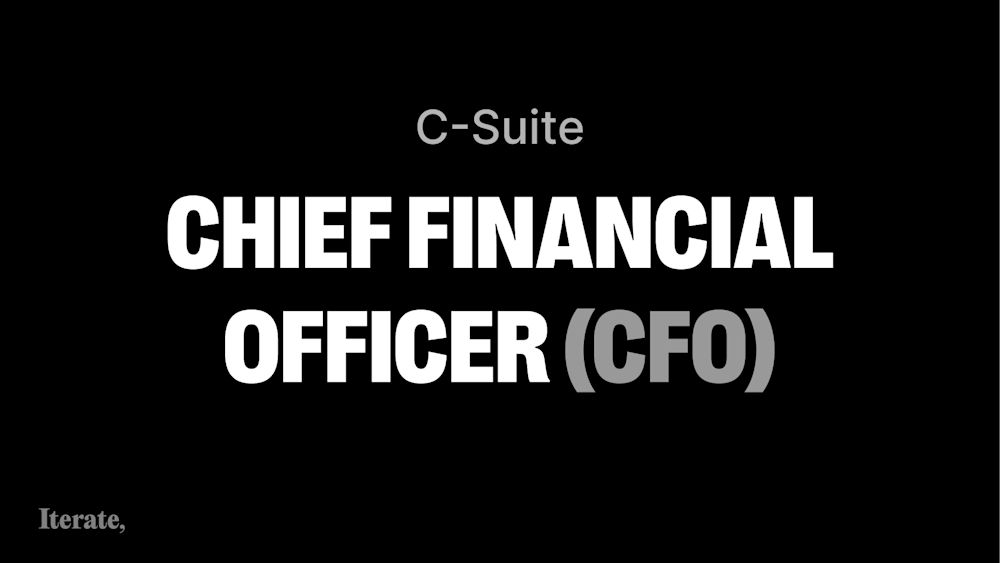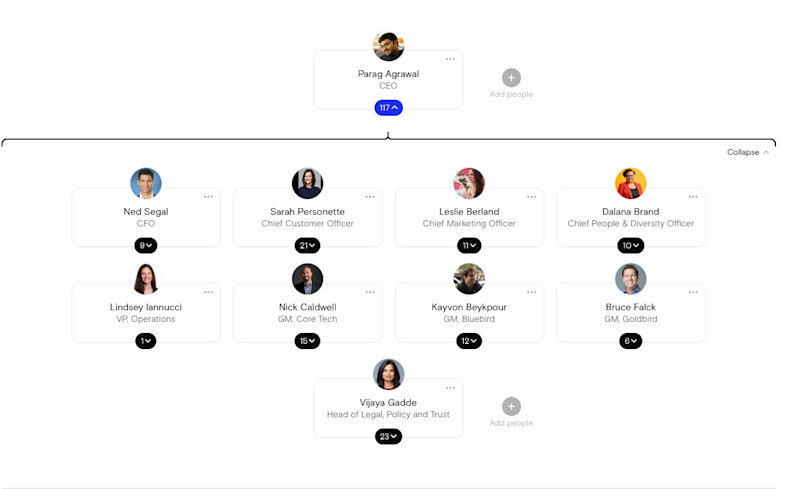- Iterate
- Job Titles
- What Is a Chief Financial Officer?
Table of contents
In this guide, we will explore one of the key leaders integral to a business’s overall success: the chief financial officer.

What is a chief financial officer?
In recent years, companies have made many new additions to the C-suite, but there will always be a few senior leaders who remain staple players in an organization’s rung of strategic advisors. In this guide, we will explore one of those key leaders integral to a business’s overall success: the chief financial officer.
A chief financial officer (CFO) is the highest-ranking financial professional within an organization’s common corporate hierarchy, and is brought on board to optimize the financial performance of a company. This corporate officer oversees all financial and accounting functions and teams within an organization and provides necessary operational and budgetary support. Reporting directly to the chief executive officer, the CFO works closely with the CEO to mitigate risk, obtain funding and forecast the financial future of the business. Additionally, the CFO has significant input in all of the company's financial activities such as its investments, expenses, taxes and capital structure.
What does a CFO do?
Chief financial officers are held accountable for the fiscal health of the business, and they do so by monitoring its cash balance, executing cost-benefit analysis and helping to develop its long-term business strategy. They oversee teams responsible for controllership, treasury and economics, and consolidate findings from these functions to make strategic business decisions to improve the company’s financial performance. However, the CFO is much more than a company-wide accountant. Their crucial strategic oversight of the finance unit is often a catalyst for driving business transformation and operational changes to achieve the company’s corporate goals. The chief financial officer’s responsibilities include, but are not limited to:
- Building and managing successful finance and accounting teams.
- Financial modeling, forecasting and planning to predict how the business can achieve long-term success.
- Analyzing and reporting all historical financial information and data.
- Managing the company’s cash flow and ensuring profit and expenses stay in balance.
- Crafting and delegating budgets.
- Working closely with investors and shareholders to raise additional capital.
- Making recommendations on mergers and acquisitions.
- Advising department heads on ways to maximize revenue and save costs.
- Overseeing the capital structure by determining the best mix of debt, equity and internal financing.
- Communicating with the C-suite and board of directors to advise them on financial risks and implications.
- Ensuring the company is compliant with federal and state tax laws.
- Assessing and designing financial systems.
Chief financial officer vs. chief revenue officer
While the chief financial officer might be the CEO’s right-hand person when it comes to much of the company’s money matters, their role is not to be confused with that of the Chief Revenue Officer (CRO), a newer and more growth-focused addition to the C-suite more commonly seen in startups. The CRO of an organization ensures that the business is continually generating revenue and works to create new avenues for profit. This corporate officer may work closely with the CFO, but the CRO oversees entirely different departments, such as sales, customer success and marketing.
How to become a CFO
If you're thinking of becoming a CFO, buckle up — it could be a long journey ahead. CFOs typically have 10 to 20 years of experience, and are expected to follow a more traditional career trajectory consisting of higher education, prestigious corporations and proven leadership experience. And if that's not challenging enough, you also have to be really good at math.
Even so, the chief financial officer is among the most prestigious and highly-paid positions in a firm, so achieving the position is definitely worth the wait. Many financial professionals begin their careers at large banks or at one of the “big four” accounting firms which include Deloitte, Ernst & Young (EY), PricewaterhouseCoopers (PwC) and Klynveld Peat Marwick Goerdeler (KPMG).
Here are some of the common job titles one might obtain before becoming a CFO:
- Financial analyst
- Accountant
- Bookkeeper
- Tax specialist
- Investment banker
- Creditor
- Financial planner
- Financial controller
- Treasurer
- Director, Vice President or Head of Finance
Skills and qualifications of a CFO
However, it takes more than just a well-mapped-out career path to become a successful CFO. There are also many necessary competencies and qualifications that one must acquire along the way to secure this role such as advanced degrees, certifications and other softer skills. The majority of people who end up in this C-level position usually possess:
- MBA in Finance, Accounting or Business Administration
- Certified public accountant (CPA) certification
- Chartered Financial Analyst (CFA) certification
- Leadership and management skills
- Technical and data analysis skills
- Communication and conflict management skills
- Strategy and corporate development skills
- In-depth knowledge of generally accepted accounting principles (GAAP) and corporate financial laws
- Significant corporate finance experience
Where does a CFO sit in an organization?
To give you a better understanding of where a chief financial officer sits in an organizational structure, view Twitter’s public org chart. The CFO, Ned Segal, sits directly below the CEO, Parag Agrawal. Reporting to Segal are the leaders of Twitter’s accounting, investor relations, tax and treasury, corporate development and financial planning & analysis teams.

Ready to start mapping out your own career path to the chief financial officer position? Make a (free) account and join your company to see more!
Sign up now: Stay up to date, level up and hire better with our behind the scenes newsletters at the world’s top startups.

